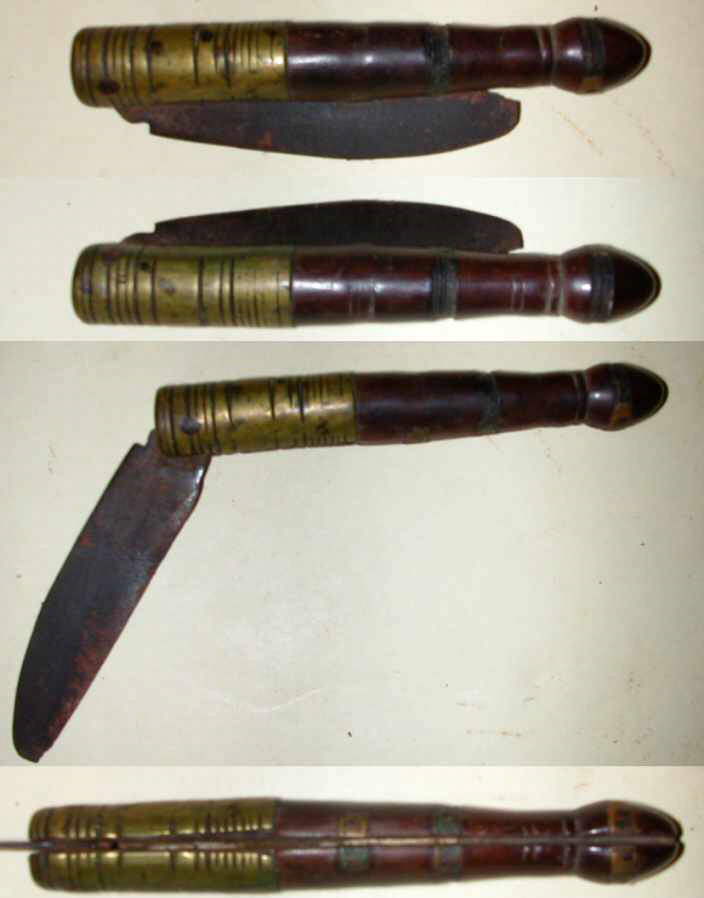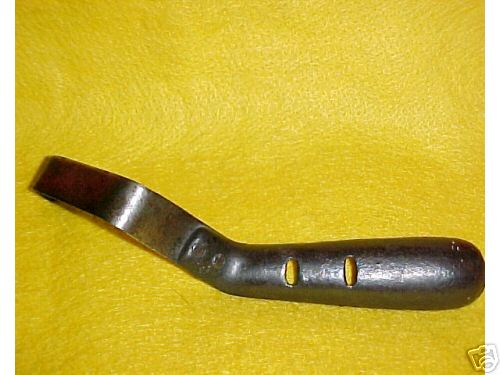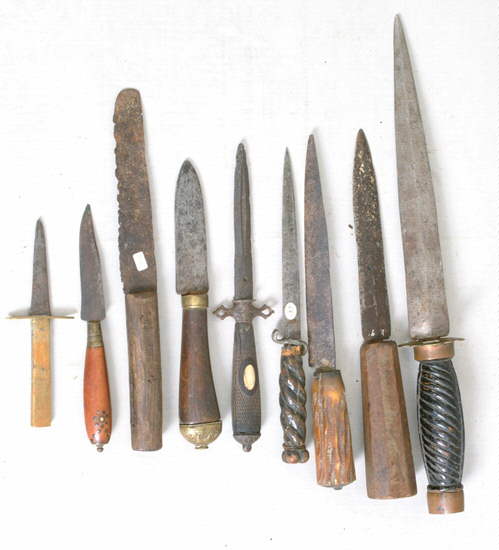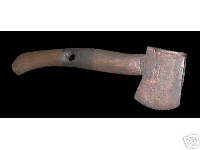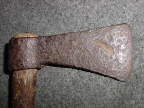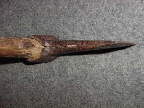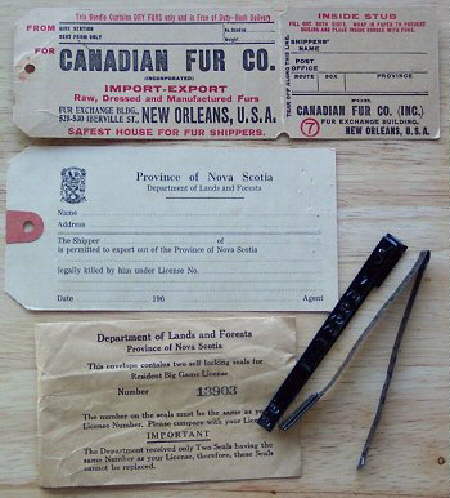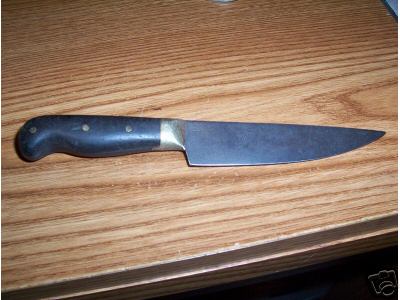_________________
_________________
_________________
_________________
Related links of interest of our family and its activities.
_________________
___________________
The Conner Collection.
Edged Arms
Treasures from the French and Indian Wars to the American Westward Movement, gifts, found, traded for or purchased.
Shown is just a sampling of the long arms we have sold or traded since 2001. Quite a few have been sold to several museums from Maine to Washington and are now on display or will be shortly.
Thank you for taking the time to look.
Buck Conner
* * * * * * * * *
The French and Indian Wars, The American Revolution & War of 1812.
Edged Arms.
|
American Officer Sword: This is definitely an American type put-together, perhaps from such parts of a discarded or broken hangar. The blade, would have been made up by a blacksmith to turn the original hangar into a sword. The scabbard and brass mounts are a cut above the work of the local blacksmith, but they were available and did the job. Hunting Sword: This sword appeared in France about 1657. It was used to dispatch wounded game. The military, attracted by its interesting style, adopted it. Officers on both sides wore it during the Revolutionary War. British Hanger, "Model" of 1751: Three-branched guard, grip has spiraled grooves, solid brass. Blade has single fuller 1/2" wide, extending along blade. Scabbard is fine black tooled leather with brass mounts. The issue sidearm of the dreaded British Grenadier. Musician's Sword: There is ample evidence of swords being carried by British fifers and drummers, but little knowledge of their use by American musicians. We sold one specimen to the Marine Museum in Philadelphia. Dragoon Sabre: This is a British Sword with a stirrup hilt issued to the 15th Light Dragoons circa 1773. Grip were black hardwood, the hilt and heavy leather and the scabbard mounts are steel. |
We didn't really get into this area of collecting, usually purchased in 'bundled sales' with other weapons. |
* * * * * * * * *
|
The purpose of rendezvous was to trade beaver pelts for goods that were needed in the mountains by both the trappers and the local natives. Blankets, guns, knives, powder and lead, knives, kettles and pots, cloth, food and spices, whiskey and such items were brought out to trade.
Highly inflated prices known as "mountain prices". Markups as high as 1000% were common. The real money in the fur trade was in the supply business. Many items were brought out specifically for trade with the Indians. It was normal for there to be more Native People at rendezvous than trappers. Beads, brass rings and bracelets, vermillion, bells, ribbons, and cloth were highly sought after by the Indian women. Rendezvous were normally held in early July, and may last from days to several weeks. One of the few times that the mountain men didn't work. The men eagerly awaited for news from the states, visited with friends, discussed affairs of the mountains, drank, played, fought and generally had a good time. Next to their rifle was always a knife, used for skinning, a tools, a weapon and friend. Most carried several with them and usually had a cache of several more, used for trade or replacements. |
|
* * * * * * * * *
The American Civil War 1861-1865 & The American Westward Movement.

Edged Arms.
|
UNDER CONSTRUCTION AT THIS TIME. |
Similar in length, style and weight of those of the French and Indian Wars, the American Revolution & War of 1812. Biggest changes are in the shape of hilts, some blades, etc. Dating has become an art in studying edged weapons of the American Civil War. |
|
* |
_________________ NOTE Items shown on the "Conner Collection" pages have been SOLD and have been transferred to museum and personal collections across N. America. _________________ |







